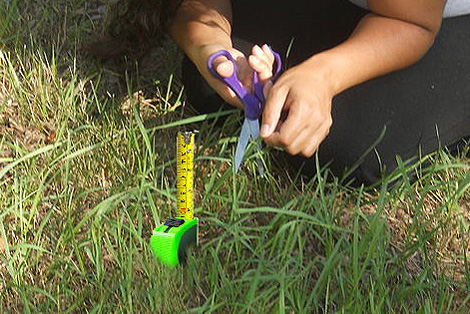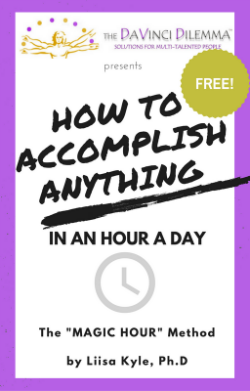
By Lyn Lomasi [CC0], from Wikimedia Commons
Think about what it might be like to work for Martha Stewart — or to live with her. Think about auteur directors who reduce their cast and crew to stressed out, nervous wrecks. If you tend to be a perfectionist, consider how your perfectionism is affecting others.
1. It puts those around you under excessive stress.
I promise you that if you are stressing over something, you are not doing so solo, in a vacuum. You are leaking stress onto everyone with whom you come in contact — your colleagues, your friends, your family, your pets and innocent passersby as well. Think of the family member you snapped at or the slow cashier you stomped away from. When you’re stressed out, you leave few in your wake unscathed.
2. It puts others around you at the mercy of your judgment.
You may think you are open to experience, tolerant of others and otherwise Zen. And perhaps you’re all of those things to some extent. But part of being perfectionistic is a process of constantly evaluating what’s going on — and comparing it to your sky-high standards. You frequently make judgments– especially when things unfold differently from your expectations. It is daunting for others to operate around you when they are under your constant scrutiny. It might manifest in mundane ways — like when you re-load the dishwasher because your spouse didn’t load it the way you prefer. Or it might be more stress-inducing — like when you over-edit (or rewrite) a colleagues’ report or take over your kid’s school science project.
3. Your anxiety is viral.
Any time you are fretting about how things might unfold, you are fomenting a wave of anxiety that ripples forth in all directions. If you’re worried about something, the people around you are not immune. Think of the ‘nervous Nellies’ you know. How pleasant to be around? Think of them as mirrors.
4. You can be a Debbie Downer.
Perfectionists often expect the worse. If this sounds like you, what effect does that have on others? Do you bring them down too? Do you expect them to try to convince you otherwise?
When negative events do happen — especially if you tend to extrapolate and exaggerate them – how does that effect your family, friends, colleagues and passersby.
“See? I didn’t get the part. I’m a lousy actor. I’m a complete failure. My whole life is a waste. I’m worthless.” How does that make the people who care about you feel?
5. Your chronic dissatisfaction is a drag.
If you are rarely satisfied with yourself and with circumstances — as is the case with most perfectionists — this is a drag for everyone with whom you interact. Even when things turn out magnificently, your happiness is brief. This hurts people who care about you. They want you to be happy. They want to cheer for you. They want you to feel better about yourself, your life and whatever’s going on. When you’re unhappy, you’re bringing down the people who love you most.
***
The first step in improving your personal and professional relationships is to become aware of the impact you’re having on others.
Begin by taking note of the reactions of the people in your life:
* Are you causing them stress?
* Are you judging them silently (or out loud)?
* Do you expect others to do things exactly as you would do them?
* Are you spreading your worries?
* Are you bringing them down?
* Do you put others in the position of having to convince you that things aren’t as dire as you can imagine?
* Do you let the people who care about you see you happy?
* To what extent do you beat yourself up or put yourself down in front of those who care about you?
Once you start to see patterns — the reactions of others to your perfectionistic behaviors — you can learn to manage your actions to shield others from your perfectionism.
***
 For more, check out my book Overcoming Perfectionism: Solutions for Perfectionists
For more, check out my book Overcoming Perfectionism: Solutions for Perfectionists
Available here in Paperback and eBook format: http://bit.ly/PerfectionismSolutions
***
How about you? How have perfectionists affected you? Or how has your perfectionism affected others? We’d love to receive your thoughts in the comments box below.
* * *
Want to re-publish this article? Go for it – just include the author’s name, a link to this original post and the following text blurb:
Are you struggling with too many talents, skills, ideas? You may have The DaVinci Dilemma™! Find tools, fun quizzes, coaching, inspiration and solutions for multi-talented people at http://www.davincidilemma.com/ .




Trackbacks/Pingbacks